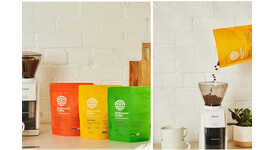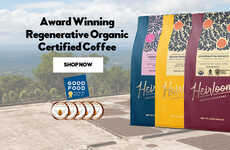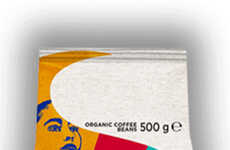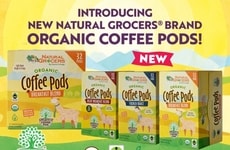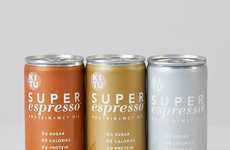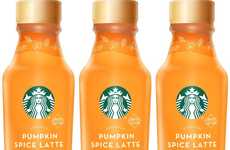
Löfbergs' EKO Mörkrost Blend is Organic and Ethically Sourced
Jana Pijak — April 26, 2017 — Lifestyle
References: shop.lofbergslila
Swedish coffee brand Löfbergs is known for its artisanal and ethically sourced product range -- its EKO Mörkrost blend is a dark coffee roast, made with handpicked and organic Arabica beans. The product is also branded with sustainability in mind, appealing to consumers who are serious about the ethical business practices of the brands that they are buying from.
Löfbergs' EKO Mörkrost is made in collaboration with organic coffee farmers in East Africa and South and Central America. Additionally, the coffee "comes from plantations that do not use chemical pesticides or fertilizers, reducing the organic growing climate impact."
Marketed to consumers seeking to invest in a high quality coffee blend that is also ethically sourced, this dark roast is compatible with most filtered brewers.
Löfbergs' EKO Mörkrost is made in collaboration with organic coffee farmers in East Africa and South and Central America. Additionally, the coffee "comes from plantations that do not use chemical pesticides or fertilizers, reducing the organic growing climate impact."
Marketed to consumers seeking to invest in a high quality coffee blend that is also ethically sourced, this dark roast is compatible with most filtered brewers.
Trend Themes
1. Artisanal Coffee - Opportunity to create unique and high-quality coffee blends sourced from sustainable and ethical practices.
2. Organic Products - Potential to develop a range of organic products across various industries to cater to the growing demand for sustainable and environmentally friendly options.
3. Ethical Branding - Disruption opportunity lies in developing and promoting brands with strong ethical values and sustainable business practices to attract socially conscious consumers.
Industry Implications
1. Coffee Industry - Innovations can focus on sustainable sourcing, ethical practices, and unique blends to tap into the growing market of coffee enthusiasts seeking quality and conscience in their coffee.
2. Food and Beverage Industry - Potential for sustainable and organic products across various segments of the food and beverage industry to meet the demand of eco-conscious consumers who prioritize ethical and sustainable practices.
3. Consumer Goods Industry - Opportunity to develop and promote eco-friendly and ethically sourced products to appeal to consumers who are increasingly concerned about the environmental and social impact of their purchases.
0.6
Score
Popularity
Activity
Freshness



